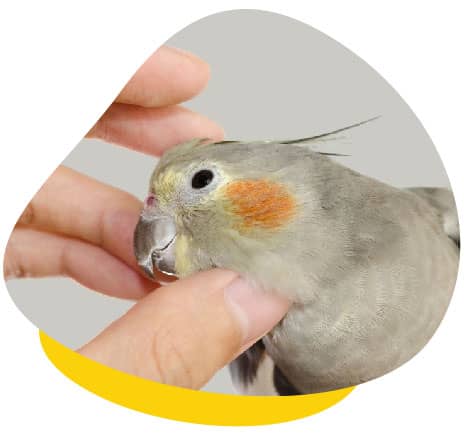What Is Chronic Egg-laying?
Chronic egg-laying is when your bird lays eggs more often than it should. Laying an egg places huge metabolic demands on your bird, and over time excessive egg-laying can lead to problems. An inappropriately high reproductive drive often causes chronic egg laying.
Several Factors Can Increase Your Bird’s Reproductive Drive, Including:
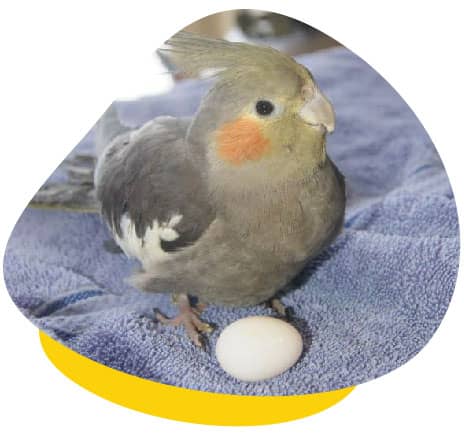
Genetics
Some birds are innately predisposed to laying too many eggs. ISA brown chickens are a common example of this.
Day Length
- The reproductive cycle of many birds is seasonal and triggered by changes in day length, temperature, rainfall and other environmental triggers.
- In general: longer daylight hours = eggs
Sexual Stimulation
- Due to inappropriate human interaction or availability of a mate
- Contact such as petting and scratching below the neck may be construed as mating behaviour, which will stimulate the reproductive drive
- Allowing your bird to eat from your mouth can be viewed as mutual feeding by your feathered friend.
- A “mate” can sometimes be your birds favourite toy
Provision of a Diet Rich in Nutrients
One of the triggers for egg laying is the ability to feed any young that might emerge from the eggs. If there is a diet that is rich in nutrients (as would be available in the wild after a rain event, warm temperatures or during longer days) then birds will be more prone to becoming reproductively active.
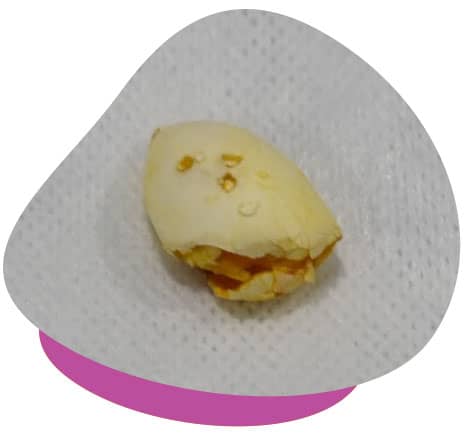
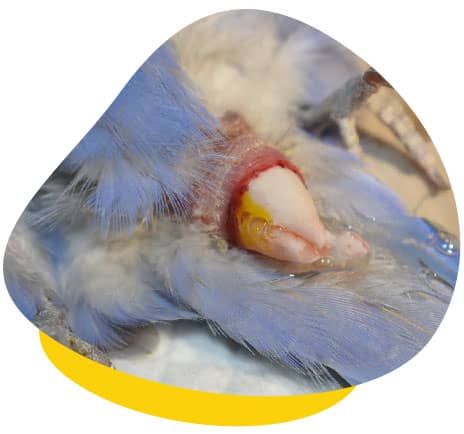
Nesting Sites
- The availability of nests or nesting boxes often increases a bird’s reproductive drive
- This can include any dark space, cupboards, shelves, slippers or even the insides of guitar hollows! Birds that want to lay eggs will find an appropriate spot!
Neoplasia (Cancer)
Some tumours that originate from the reproductive tract may also secrete reproductive hormones, which can lead to excessive egg-laying.
What Are Some Symptoms You Might See as a Result of Chronic Egg Laying?
The most common accompanying signs you will see include; your bird becoming lethargic or reducing its activity level around the cage, birds may also become more aggressive and territorial and may favour one family member whilst being aggressive to all others.
Some birds may become egg-bound, which occurs when they cannot pass an egg due to inappropriate nutrition, an excessively large egg, poor muscle tone and or inflammation of her oviduct. If this happens in your bird, they will go off their food, become fluffed up, and may strain intermittently or continuously.
What Kind of Birds Are Most Prone to Chronic Egg-laying?
Any bird species can suffer from chronic egg-laying; however, it seems that cockatiels (weiro’s), lorikeets, budgies, lovebirds, eclectus parrots and chickens are most prone.
What Testing Can We Do?
There is no specific test for chronic egg-laying. The diagnosis is based on several things including the history, physical exam and sometimes organ function testing or radiographs (x-rays).
Your attending bird vet may recommend complete bloodwork to ensure that your bird is otherwise well and x-rays to evaluate the reproductive tract and bone density. From there, we may recommend more specific treatments or testing for your bird.
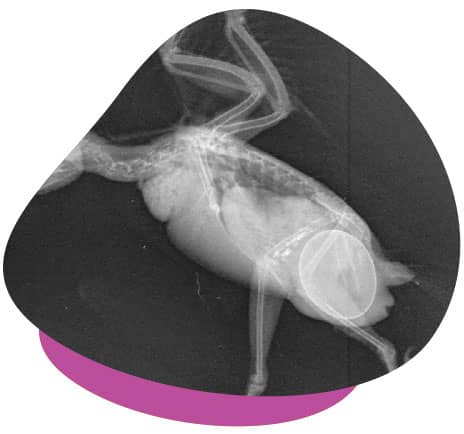
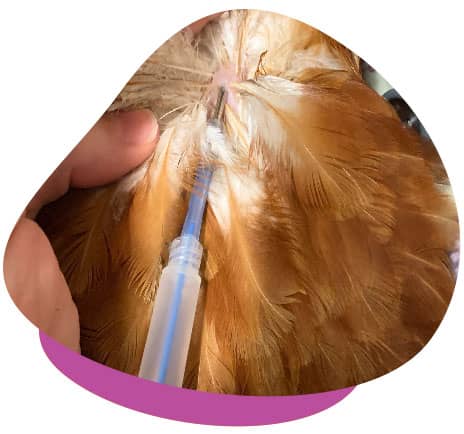
What Kind of Treatments Are Available?
The cause will determine the treatment options available. If the cause is due to an over-stimulated reproductive drive, the veterinarian will discuss husbandry and medical treatments with you.
The most common and most frequently used medical treatment helps to down-regulate the production of sex hormones. Hormonal injections or implants can be used. This works by switching off the hormones which drive the reproductive cycle.
Surgical sterilisation similar to what we offer routinely to our rabbits, ferrets, and guinea pigs is also an option. We will discuss whether this option is appropriate for your bird during the consultation.
What Can I Do at Home?
There are many husbandry factors that we can address that will help resolve your bird’s condition at home. Some of these include:
- Proper Diet – An all-seed diet is low in calcium and protein, which are the main constituents of eggs. Your attending veterinarian will discuss a diet appropriate for your bird species.
- Light Exposure – Depending on each case. Most commonly, we recommend trying to have a consistent day length year round. This will mean covering your bird’s cage so it is dark for between 12 and 14hrs each day. This prevents the seasonal flux in hormones and also allows a stable and consistent routine that your bird can get used to.
- Removing Nest Boxes and Nesting Material – It is also recommended you prevent access to appropriate nesting sites (cupboards, shelves, shoe boxes etc).
- Confining Human Contact to the Neck and Head Only – This means no grooming under the wings, on the rump or back and preventing kissing or touching your bird with your face.
If you suspect your bird is suffering from egg-binding, this is a condition that must be dealt with as soon as possible and prompt veterinary attention is advised.
